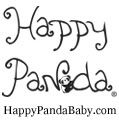I found some great information while doing some research on buying an organic turkey for the Thanksgiving Holiday this year and thought I'd share it with you. Hopefully this will help you "decode" the terms on your turkey label to decide if it is right for you. This information comes from the Health Child Healthy World Blog.
98% of Americans gobble up turkey during a traditional Thanksgiving dinner. In fact, farmers sold about $3.86 billion worth of turkeys in 2007, according to the USDA.
To buy a turkey that is healthy, humane, and eco-friendly is no small task. When shopping for a turkey, we are confronted with a label language few can understand. Heirloom? Free-range? And everyone’s favorite, Natural? We know enough to be skeptical of deceptive labeling, so what do all these claims mean?
Our friends at Celebrate Green! devoted a section of their Thanksgiving chapter to decoding the turkey talk – so you know what you’re buying into before it’s dinner time. If you haven’t yet picked up a copy of this invaluable green holiday guide book, do so now! Remember Healthy Child receives a donation for every copy sold.
Definitions and Labeling for Turkey as defined by the USDA:
Natural - Turkey labeled natural contains no artificial flavor or flavoring, coloring ingredient, chemical preservative, or any other artificial or synthetic ingredient. It must also be minimally processed, so that the raw product is in no way fundamentally altered. The label must explain the use of the term “natural” with product-specific details.
No Hormones - Federal regulations prohibit the use of hormones in raising poultry. So any label that claims “no hormones added” is advertising falsely or trying to legitimize a higher price tag.
Kosher - According to Kosher laws, animals should be cared for ethically, and slaughtered as humanely as possible. However, correct Kosher treatment may be the exception rather than the rule, especially in large organizations. The label doesn't guarantee that animals are raised or treated any better than animals from industrial farms. Local farms or butchers may have more specific details on how their poultry was raised and cared for.
Organic - Any product claiming to be organic isn’t fully legit without the USDA Organic Seal, which means the product is made of 95% organic ingredients. When the term organic appears on a label without the seal, the product is 70% or more organic.
Free-range - Free-range turkeys are touted as the best for the bird. But, the USDA says the term means very little, only that birds have “access” to the outdoors. That means they are likely bred similarly to conventional birds: in over-crowded space with a short lifespan to end in a potentially inhumane slaughter. Once again, your local farm or vendor may be able to better guarantee your bird enjoyed a humane life.
Heritage - Heritage turkeys are defined by the historic, range-based production system in which they are raised. They must meet the following criteria: natural mating, long productive outdoor lifestyle, and slow growth rate.
Heirloom - According to the Heritage Turkey Foundation, heirloom turkeys may come from older breeds, and “can’t mate naturally, do not mature like true heritage turkeys, and don’t taste good.”
Thanks to our friends at Celebrate Green! for continuing support and collaboration!
Subscribe to:
Post Comments (Atom)













1 comment:
So which is the best bet? If going organic meat should be a priority ...At least from what I have read. So what did you decide to buy? I am still clueless in what would be best for my family and affordable too.
Thanks
Post a Comment